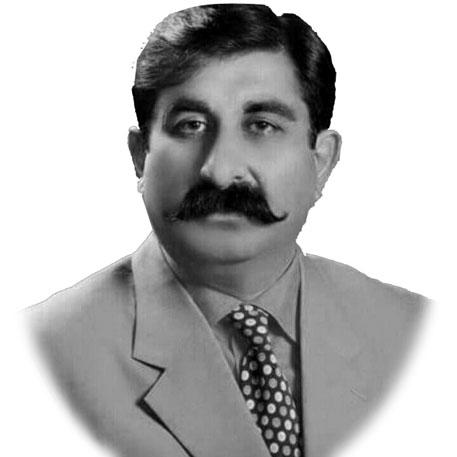Rotten system suits the stakeholders
WITH the passage of time reforms are always required to update the system and mechanisms of the components of the State.
Institutional reforms are basic to good governance, and Pakistan is in dire need of economic, political, judicial, social, and civil and military bureaucratic reforms.
Reforms are always neglected for various reasons because our rotten system suits different mala-fide stakeholders. The political system has passed through turbulence since Pakistan’s inception.
Since 1973, no reforms have taken place in any sphere of our destroyed ugly system, except a hybrid model of governance tilting towards a presidential office, although constitutionally with a parliamentary system, during military regimes.
As such, no proper constitutional and political reforms took place except the introduction of a larger women’s quota in parliament during Musharraf’s regime.
It is a matter of concern that the local government system has not been prioritised by political parties; ideally local government would be the backbone of the political system, providing solutions to the problems faced by citizens right at their doorstep.
All military regimes have rightly prioritised the local government system, although due to their own political exigencies of legitimacy.
There is a wide gap in theory and practice so far as implementation of this system of governance is concerned.
None has made efforts to reform the bureaucracy. These days the bureaucratic reform process is in limbo.
If we look at the history of bureaucratic reforms, we find that various Committees and Commissions have worked in the past.
The notable reforms were during Zulfikar Ali Bhutto’s time, when the Civil Servants Act, 1973 was introduced and Common Training Programmes of all occupational groups started as a symbol of the equality of the civil service to provide relief to the people of Pakistan. Since then, the reform process has been purposefully stalled.
The Musharraf government initiated a reform process to reform the bureaucracy and the political system through the National Reconstruction Bureau (NRB) under Gen Tanveer Naqvi and the National Commission for Government Reforms (NCGR) under Dr Ishrat Hussain.
Dr Ishrat Hussain, also engaged by the present government, has been working on this project and gave recommendations like the creation of a National Executive Service with a specialised cadre of services.
However, these reforms have yet to see the light of the day. The Police Order 2002 is still intact, which is a contribution of the NRB under the Musharraf regime.
Police and Patwaar have made life of the innocent masses miserable; this is why here reforms are inevitable first of all.
The reforms were on track till the Musharraf regime but the process was interrupted owing to multiple reasons – from some of the decisions of the higher courts to the prevailing situation regarding NAB.
The whole process of decision-making is choked, resulting in more losses burdening the taxpayers of Pakistan.
The need of the hour is to speed up the process of privatisation of loss-making PSEs and companies – the sooner the better.
Reforms are needed in the services sector, agriculture sector, aviation sector, and the large-scale manufacturing sector along with monetary and fiscal policies by rationalising the taxation system. The people are facing the worst sort of inflation and price hike, especially in food items.
Food security has become a prime issue these days, where job loss is rampant and inflation is skyrocketing.
There is thus a need for a robust regulatory mechanism and state intervention to ensure maximum relief to the people.
Political reforms can only be ensured by an inclusive approach involving political parties through a grand dialogue between state institutions, as envisaged by former Senate Chairman Raza Rabbani and lately endorsed by none other than Chief Justice Khosa during his tenure in office.
It is a considered opinion that besides other political and constitutional reforms implementation of the local government system in true letter and spirit is absolutely necessary for the overall development of the country.
There is a serious need of bureaucratic reforms to get rid of the logjam of the present mess.
These reforms must start from inductions of civil servants, to their capacity building via training to make them an effective executive arm of the government ensuring service delivery.
This can only be done through an inclusive approach by involving the people and the stakeholders in the decision-making by the field officers of the administrative services.
So far, the approach is totally exclusive; this is one of the major reasons that the people at large have no say in the decision-making and rather possess contempt for the civil services.
This is the area where reforms are immediately needed to achieve the goal of good governance.
Intra-civil services reforms are also necessary to get rid of the domination of one group over all others, which also leads to discontentment and frustration.
Good governance is an inclusive process involving the public through institutional reforms ensuring all segments of society to participate in the overall development of the country. Institutional reforms are elusive and effective reform process is still a dream.
Imran Khan was brought with high hopes and ideal reforms based slogans. Every now and then Imran Khan has been propagating about suddenly declared corrupt and incapable Nawaz Sharif and Asif Zardari because “change” was to be “inevitable”.
Before coming to power Imran Khan has continuously been talking about widespread reforms in different fields, departments and institutions.
Three years of Imran Khan’s rule have gone without any reform based betterment in any field, department and institution. Now at this stage he seldom talks about reforms.
He contested 2018 elections within same rotten system of our country and he is comfortable with it now.
Regarding reforms matter same sluggish response of other leaders of different political parties is seen. None is interested in bringing reforms to the country because it doesn’t suit them.
—The writer, based in Islamabad, is book ambassador, columnist and author of several books.










